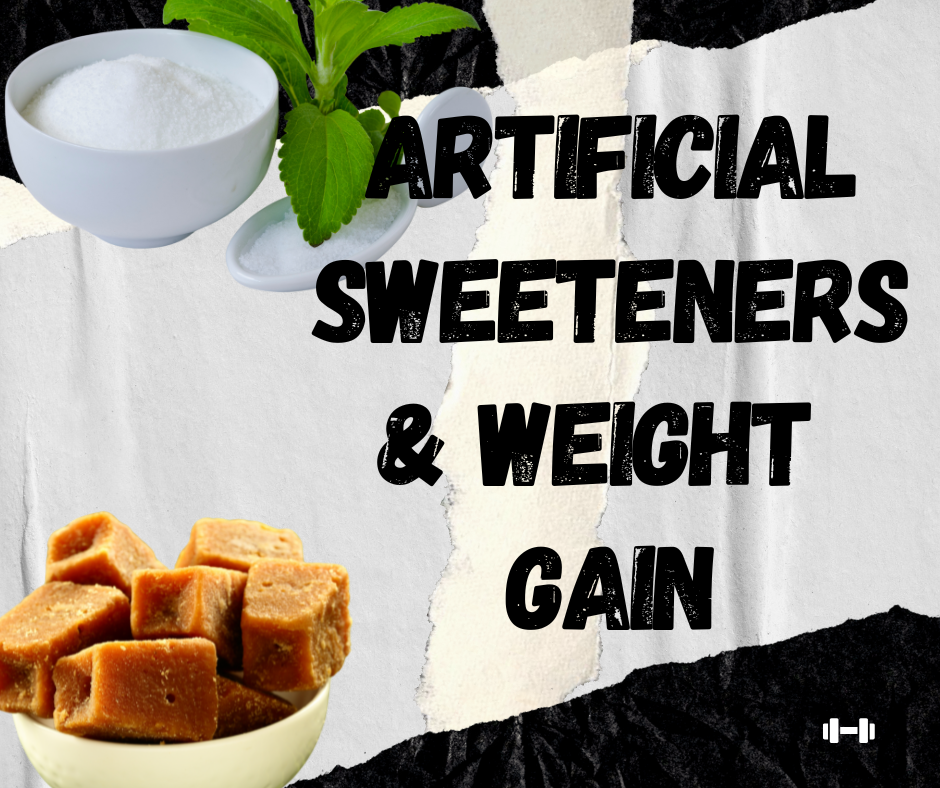Artificial sweeteners have been promoted as a low-calorie alternative to sugar, allowing people to enjoy sweetness without extra calories. Found in diet sodas, sugar-free snacks, and many processed foods, they are often linked to weight loss and better health. But do they truly help with weight management, or could they have unintended effects? Recent research suggests that their impact on metabolism, appetite, and gut health is more complex than previously thought. This article explores their effects and whether they support weight loss or pose hidden risks.
What Are Artificial Sweeteners?
Artificial sweeteners, also known as non-nutritive sweeteners, are synthetic sugar substitutes that provide intense sweetness with little to no calories. Unlike natural sugars like glucose and fructose, they pass through the body without significant absorption. Common examples include aspartame, sucralose, saccharin, and acesulfame potassium, found in diet drinks, protein bars, and sugar-free gums.
While these sweeteners are approved by health regulatory bodies like the FDA and EFSA, concerns remain about their long-term effects. Many assume switching from sugar will aid weight loss, but emerging research suggests they may influence metabolism and cravings in unexpected ways.
How Artificial Sweeteners Affect Metabolism
Metabolism controls how efficiently the body burns calories and processes nutrients. While artificial sweeteners contain few or no calories, they may still influence insulin response. Studies indicate that some, like sucralose, can trigger insulin release despite not containing real sugar. This reaction may encourage fat storage and increase the risk of metabolic issues over time.
Additionally, artificial sweeteners may interfere with the body’s ability to gauge calorie intake. The body associates sweetness with energy, so when an expected calorie intake doesn’t follow, it may lead to stronger cravings for high-calorie foods, potentially leading to overeating.n insulin response, leading to increased fat storage over time. ✔ Metabolic Confusion: The body associates sweetness with energy. When artificial sweeteners fail to deliver calories, it may lead to cravings and overeating. ✔ Weight Gain Risk: Studies have linked diet soda consumption to higher BMI due to compensatory eating behaviors.

Do Artificial Sweeteners Increase Appetite and Cravings?
One major concern is their effect on appetite and cravings. Many people consume diet sodas and sugar-free foods to reduce calorie intake, but research suggests these products may actually heighten cravings for sweet and high-calorie foods.
Artificial sweeteners interact with the brain’s reward system. When we consume something sweet, dopamine—the “feel-good” neurotransmitter—is released. Unlike natural sugars, which provide energy, artificial sweeteners do not fully satisfy the brain’s reward pathways. This may leave individuals feeling unsatisfied, increasing the likelihood of seeking additional sources of sugar or carbohydrates.
The Impact on Gut Health
The gut microbiome, a complex ecosystem of bacteria in the digestive tract, influences digestion, immunity, and weight regulation. Studies suggest that artificial sweeteners can disrupt gut bacteria, potentially leading to weight gain and metabolic issues.
Research on both animals and humans has shown that sweeteners like saccharin and sucralose alter gut microbiota composition, reducing beneficial bacteria and promoting harmful strains. This imbalance, known as dysbiosis, has been linked to inflammation, insulin resistance, and increased fat storage. Furthermore, an unhealthy gut microbiome may disrupt hunger hormones, leading to overeating.
Artificial Sweeteners and Insulin Resistance
Insulin is crucial for regulating blood sugar levels. When insulin resistance develops, the body’s cells become less responsive, increasing the risk of type 2 diabetes. Some studies suggest artificial sweeteners may contribute to insulin resistance in two ways: by triggering insulin secretion without providing actual glucose, and by altering gut bacteria in ways that promote metabolic dysfunction.
Although often recommended as a sugar substitute for diabetics, these findings raise concerns about their long-term effects on blood sugar regulation.
Do Artificial Sweeteners Actually Help With Weight Loss?
While replacing sugar with artificial sweeteners may reduce calorie intake in the short term, long-term studies suggest a different outcome. Research links regular consumption of diet beverages and sugar substitutes to higher BMI and obesity risk.
One reason could be compensatory eating—people consuming artificially sweetened products may feel justified in eating more, believing they are consuming fewer calories. Additionally, the disruption of appetite regulation and gut health may negate any initial benefits, leading to weight gain over time.
Healthier Alternatives to Artificial Sweeteners
For those looking to reduce sugar intake without artificial substitutes, natural options provide a better alternative:
- Stevia – A plant-based sweetener with zero calories that does not impact blood sugar.
- Monk Fruit – Contains natural antioxidants and does not cause insulin spikes.
- Raw Honey – While it contains calories, it provides nutrients and is a more balanced option.
- Maple Syrup – A natural sweetener with vitamins and minerals, best used in moderation.
- Coconut Sugar – Has a lower glycemic index than regular sugar, making it a slightly better choice.
Using these natural sweeteners in moderation, alongside a whole-food diet, can reduce reliance on refined sugar and artificial alternatives while supporting overall health.
Final Thoughts: Should You Avoid Artificial Sweeteners?
Artificial sweeteners remain a controversial topic with conflicting research. While they can help reduce sugar intake, their potential effects on metabolism, gut health, and appetite regulation raise concerns. A balanced diet focused on whole, nutrient-dense foods is the best approach to maintaining health and managing weight effectively.d appetite regulation raise concerns. For those aiming to maintain a healthy weight, the best approach is to limit both artificial sweeteners and refined sugars while prioritizing whole, nutrient-dense foods., gut health, and appetite regulation raise concerns. For those aiming to maintain a healthy weight, the best approach is to limit both artificial sweeteners and refined sugars while prioritizing whole, nutrient-dense foods.
